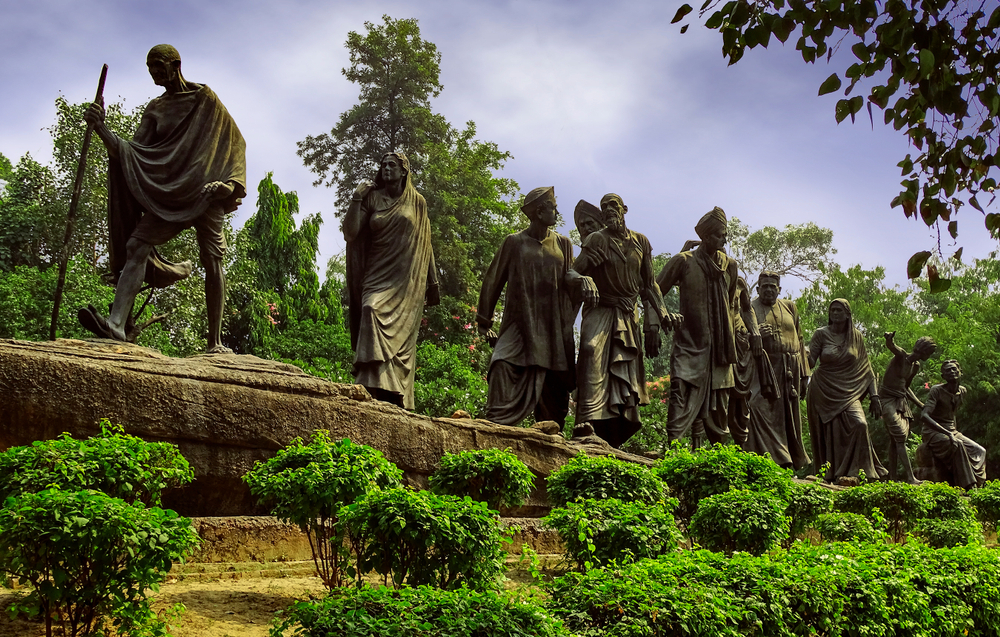
In 1998, Arun Gandhi, Mohandas Gandhi’s grandson, helped establish the Season for Nonviolence. It begins on January 30, the anniversary of the assassination of Mahatma Gandhi, and ends on April 4, the anniversary of Martin Luther King, Jr.’s assassination. For the 64 days of the Season for Nonviolence, people around the world strive to live in peace. Gandhi and King are names that are almost synonymous with peaceful civil disobedience. Here are five other nonviolent activists who brought about change.
Desmond Tutu Chose Nonviolence
Tutu received the Nobel Peace Prize in 1984 for his work against apartheid. He promoted harmony in South Africa through nonviolent actions, such as peaceful protests and boycotts. His philosophy was about peace, even though he never referred to himself as a pacifist but as a “man of peace.” Once apartheid was abolished, he worked for human rights around the world. His list of honorary degrees, honors and awards for his work would fill several volumes. He died in 2021, but his legacy lives on through many organizations that continue to fulfill his work of peace.
Mairead Maguire Chose Nonviolence
Maguire received the Nobel Peace Prize in 1976 for her work to end the violence in Northern Ireland. She became involved in the movement after her sister’s children were killed by an IRA fugitive. Maguire believed in education instead of violence, believing that the fighting at the time would not be constructive. Today, Maguire continues to support peaceful social and political activism around the world. Until Malala Yousafzai became a Nobel Laureate at the age of 17 in 2014, Maguire, at 32 years old, was the youngest woman to receive the honor.
Bob Marley
Marley is lauded for his influence on music, but he also used his music to break down racial barriers. In June 1978, he was awarded the Peace Medal of the Third World from the United Nations for his songs that promoted peace in Third World countries. His music not only sought to bring peace to his home country, Jamaica, but it also supported the struggles of Africans in South Africa and Zimbabwe. He died of cancer in 1981 at age 36. He left behind a legacy of songs that continue to promote his message of nonviolence.
Gene Sharp
Sadly, Sharp’s name is not as recognizable as many peaceful activists, but he was one of America’s most dedicated nonviolent proponents. Sharp, the son of a minister from Ohio, went to prison for protesting the Korean War’s conscription of soldiers. His influences include Albert Einstein, Gandhi and A.J. Muste, a Christian pacifist in the mid-1900s. Sharp founded the Albert Einstein Institution in 1983, which studied nonviolence in conflicts. His book, “From Dictatorship to Democracy,” has been a significant part of global change. It’s thought he was nominated for the Nobel Peace Prize at least three times, but he never received the honor before he died in 2018.
David Henry Thoreau
Thoreau, probably most well-known for his book “Walden,” influenced Gandhi and King. His essay, “On the Duty of Civil Disobedience,” promoted limited government, especially a “better government.” Thoreau was vehemently anti-slavery and served as a conductor on the Underground Railroad to bring slaves to freedom. Thoreau was not celebrated during his lifetime. In fact, he made little impact in the 19th century. While Thoreau supported John Brown, a noted abolitionist, and may not have been completely anti-violence, he laid the groundwork for political leaders and activists of the next century to take a stance against human rights abuses.
Living in Nonviolence
It takes a strong person to continue to live in peace when surrounded by so much violence. This Season for Nonviolence, study a man or woman who lived their own life in nonviolence.

